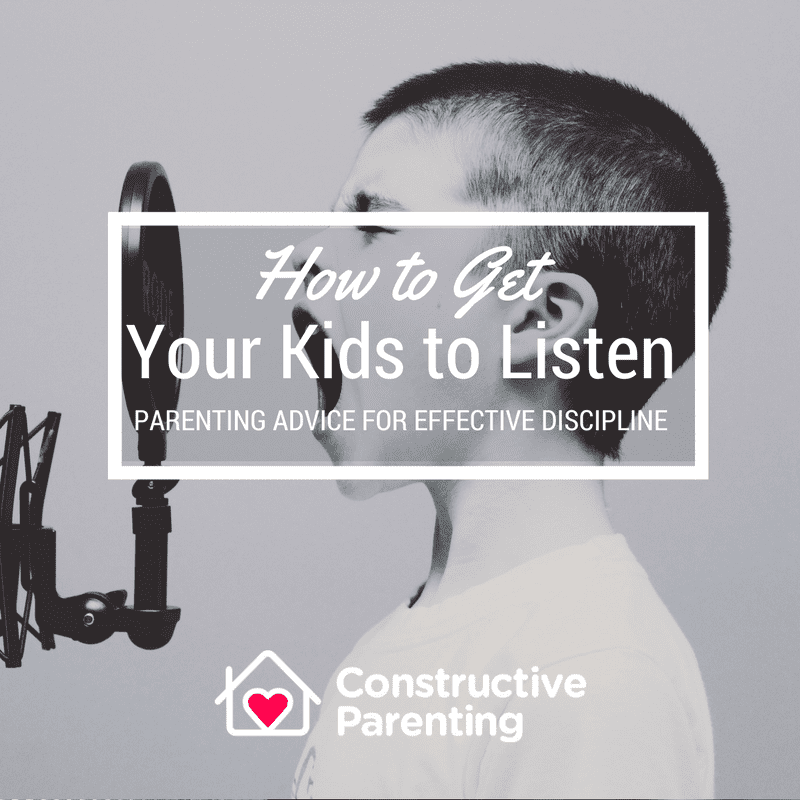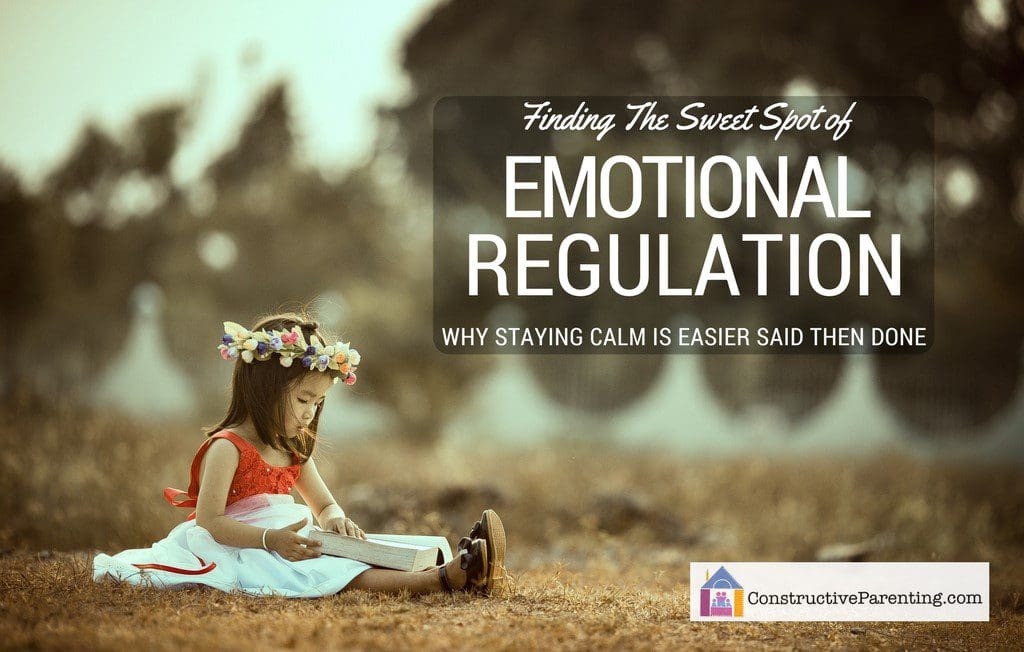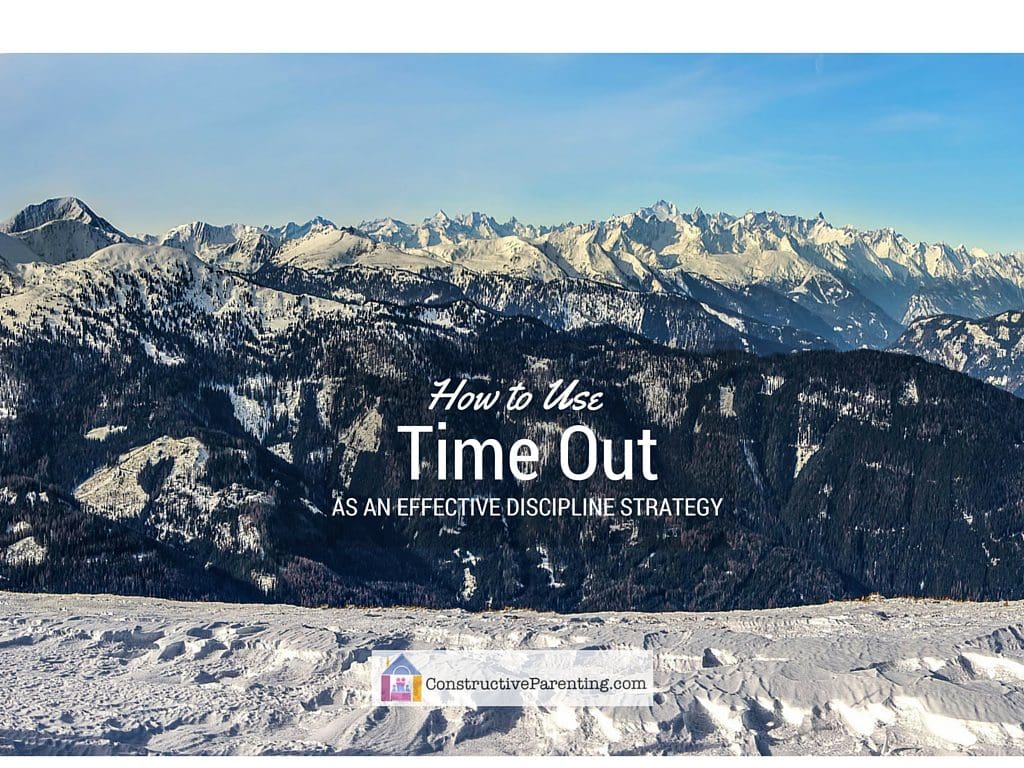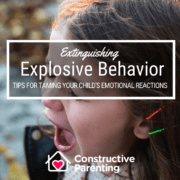How To Get Your Kids To Listen: Parenting Advice for Effective Discipline

Confession: I am not a perfect parent. One of the parts of parenting that has always been challenging for me is handling discipline. I can clearly remember when my son was younger, and we would be on playdates with other families. My child would eventually do something wrong, and I would feel an overwhelming urge to scold him in front of the other parents so that they knew that I was a “good parent”—that I took his poor behavior seriously. When I think back, I can admit that my disciplinary actions were intended to meet the expectations of what “a good parent” would do. However, it turns out that our parental instincts when it comes to discipline are often mis-guided.
When we are frustrated with our children and we are trying to get them to listen there are many different reasons we choose to react the way we do. Sometimes we are on autopilot. Sometimes we are channeling our own parents, rationalizing “if it worked for them, it should work for me.” Sometimes we are incredibly frustrated and our choices are an attempt to make ourselves feel better. Other times (like in the personal example I gave above) we are ashamed of how our child just acted and our response stems from a fear about how our child’s behavior reflects on us.
The good news is that there is plenty of research to point parents in the right direction towards techniques that lead to meaningful behavioral changes. Maya Angelou famously said, “do the best you can until you know better. Then when you know better do better.” What I have learned over the years is that the more we understand about the way the brain works, the better we can do as parents. Let’s first explore two discipline pitfalls, punishments and bribery, and then we’ll focus on connection—which is what evidence shows us works the best.
Avoiding Pain
There are three areas of the human brain and they each respond to different things. The most basic part of the brain, the brain stem, is heavily invested in avoiding pain. When something is painful or dangerous, this part of the brain responds by helping us to survive. This is the part of our child’s brain we reach when we use techniques like spanking, screaming and threatening. We are bigger then our children and they realize that we are more powerful, so when we use these techniques we often see immediate results. The problem is that we are only parenting a very primal part of our children, and they will learn to do the right thing out of fear rather then an understanding of the inherent goodness or badness of a choice. Sometimes this even means that kids learn the importance of not getting caught rather than the importance of making a good choice. Don’t get me wrong– I’m not saying that you can’t punish your children. I’m saying that consequences need to be given with calm consideration and shouldn’t be done in anger.
Seeking Pleasure
The next part of the brain is more evolved. This part of us is focused on seeking pleasure rather than avoiding pain. We discover what feels good and we want more. This is the reason that our kids always want more toys and more candy. Heck, it is the reason we always want more too. When we bribe our kids to stop misbehaving by offering them a special privilege or a material object, we are parenting this part of the brain. In a moment of desperation, you might say “okay, okay, if you stop screaming, I will buy you a Nerf gun just like your friend’s” and immediately your child becomes compliant. Unfortunately, that feeling of satisfaction is short lived and your child will quickly be longing for something else. The result is that the good behavior is also short lived. The added downside is that your child has learned that tantrumming, whining and complaining is an effective way to get what he wants.
Connection
The most evolved part of the human brain is driven by the desire to connect with others. When your new baby smiles up into your face for the first time, you are motivated to do anything to keep him or her safe (even if it means a million more sleepless nights and exhausted days). When your friend receives devastating news, this is the part of your brain that allows you to feel empathy and motivates you to do everything you can to help your friend feel better. The important part to remember about this part of the brain is that we lose access to it when we get overwhelmed with upset feelings.
Picture this: it is the end of a long day and you are exhausted. It is time for the bedtime routine and your daughter has decided that she will not go upstairs to brush her teeth. After the first warning and refusal you are flooded by angry feelings and thoughts like “how dare she speak to me that way” and “it’s time she learns who the boss is in this house.”
You have options in this moment. You can forcefully pick your child up and raise your hand letting her know that if she doesn’t do what you say she will get hurt (parenting the part of her brain that tries to avoid pain). You could cave in exhaustion and defeat telling her that if she goes upstairs right now and gets dressed you will buy her the doll she wants from the toy store (parenting the part of her brain that seeks pleasure and will choose the doll over a delayed bedtime). Or you could acknowledge your frustration to yourself, take some deep breaths and try to parent through connection.
In order to help your child learn something (the true goal of discipline) you have to “connect to redirect”. This is a phrase coined by psychiatrist Daniel Seigel. “Connect to Redirect” means that you must first connect with your child, before you can tell him what behaviors you would like him to improve.
This is definitely easier said then done and takes the most work but, believe me, it has the best long-term results. When you acknowledge how you feel and then take a “parent time out” you slow down so that you can respond to your child rather then react. A parent time-out may mean you walk to the bathroom and splash some water on your face or you go quiet for 60 seconds as you focus on your breathing rather then your frustrating child. When you are calm you consider your values and which ones are related to the reason you want your child to go to bed. In our family, for instance, we value health and that means getting a good night sleep is important for everyone.
Once you have calmed down and considered your values you can walk over to your child and put words to what they are feeling (connect). “You really like playing that game and it is hard to put it down to go upstairs.” Let her know with your body language and tone of voice that your goal is to try to understand her perspective. Then share your side, “it is really late and we need to be in bed before 8:00 because getting good sleep is important to our family and it helps to keep our bodies healthy.” At that point you can ask your child if they have any ideas for how you can meet in the middle. Maybe they take 2 more minutes to finish up and then they go upstairs and have one less story at bedtime. You get the idea. If they still refuse, you are in a great place to think of logical consequences that also stem from your values rather than your anger.
When you parent through connection you are able to rely on your values as the motivation for your parenting choices. An added bonus is that your child becomes intrinsically motivated to make good choices that align with those same family values. To get to this point it takes practice as well as self-forgiveness. We all have inevitable slip ups. If you are looking for support learning how to parent with intention, follow me on social media for additional tools and tips.











Trackbacks & Pingbacks
[…] Do you ever wish that your children would just behave? And when they don’t, you find yourself, doling out harsher and harsher consequences—thinking that if you could just find the right “pain point” they would eventually get the message that they need to change their behavior. I have to admit—we have all fallen into that trap. But it turns out that influencing behavior with harsh punishments only reinforces obedience– it doesn’t teach the values behind good behavior. In other words when you teach children to do something, right now, “because I said so” you miss the opportunity to teach them how to stop and consider for themselves the difference between right and wrong. On a side note if you are curious about whether spanking works this post is for you. […]
Leave a Reply
Want to join the discussion?Feel free to contribute!